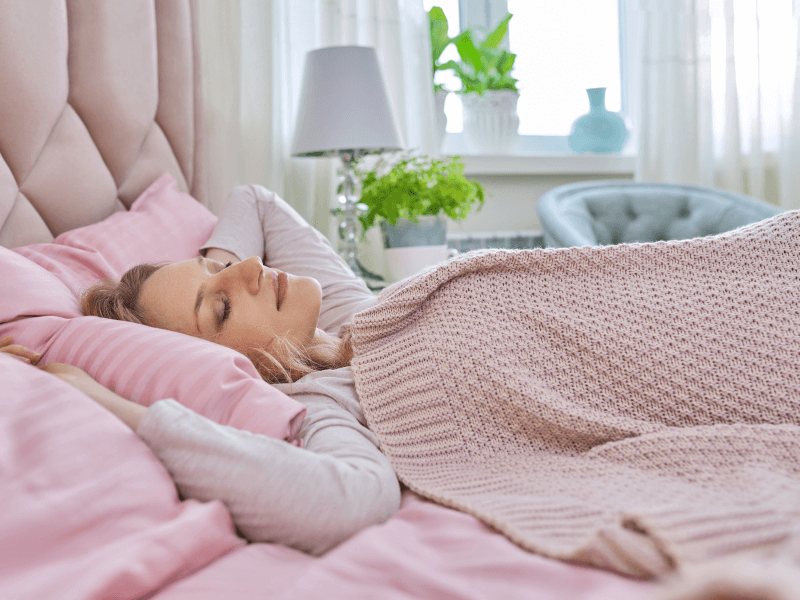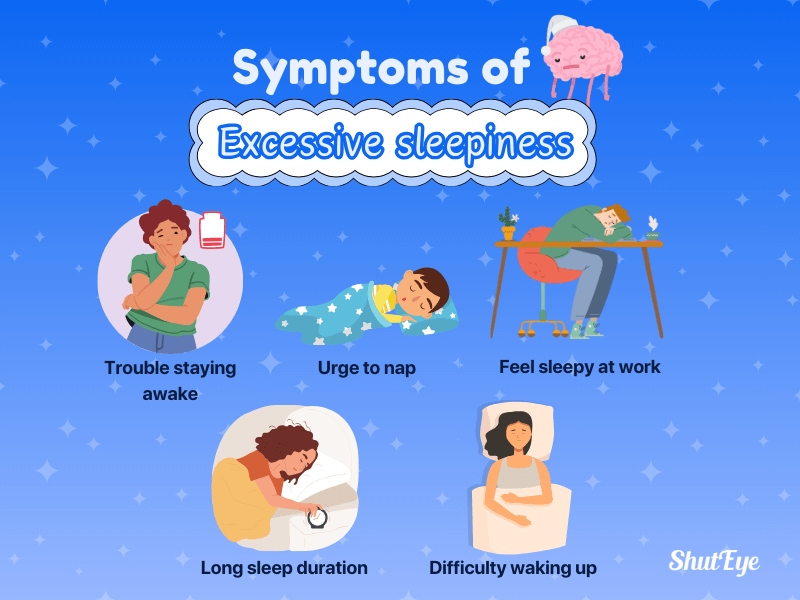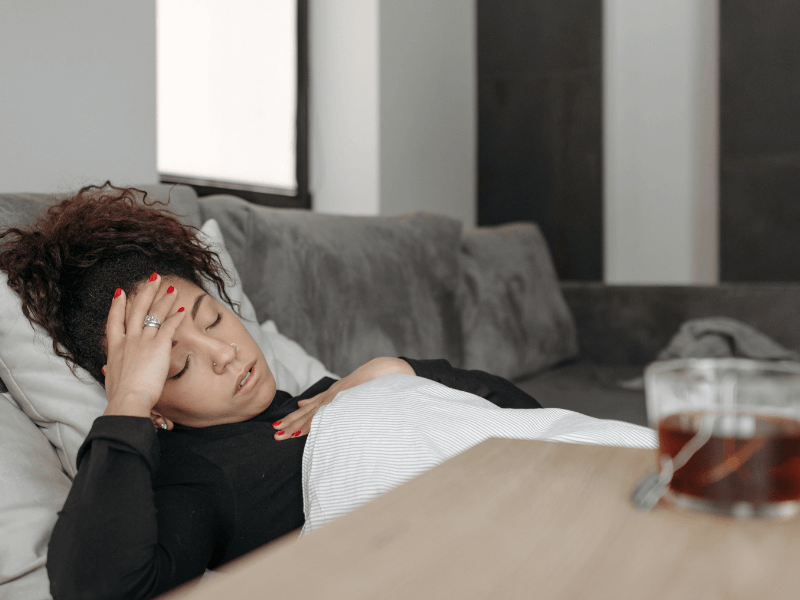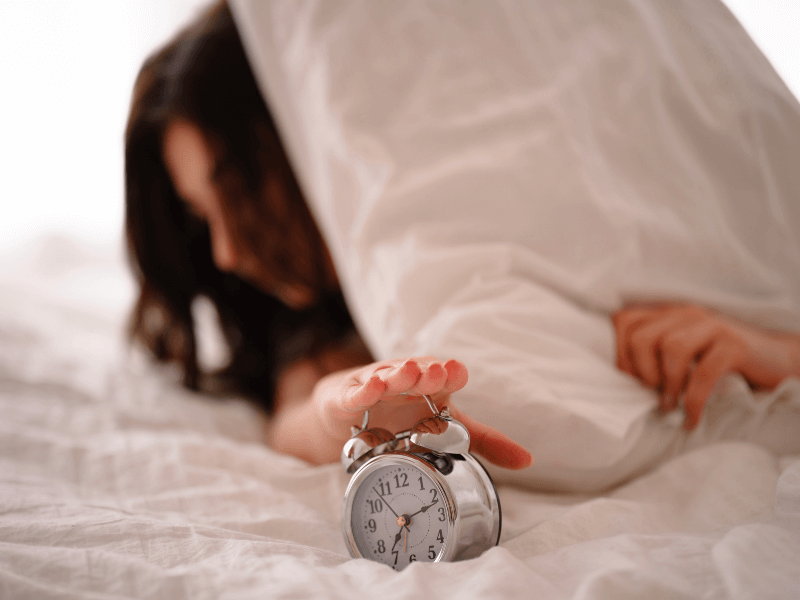


Have you noticed a shift in your sleep pattern lately and find yourself asking, “Why am I sleeping too much all of a sudden?“. A sudden increase in sleep duration is attributed to several different factors.
In this article, we’ll explore the puzzling phenomenon of sudden excessive sleep and some of the possible causes and effects of sleeping too much.

There are many reasons why you may experience excessive daytime sleepiness. Excessive daytime sleepiness refers to a persistent and overwhelming need to fall asleep during the day, even when you get a good night’s sleep.
Some of the common causes of excessive sleepiness during the day include lack of sleep, obstructive sleep apnea, narcolepsy, restless leg syndrome, insomnia, medications, lifestyle factors such as alcohol and caffeine, and shift work [1].

Excessive sleepiness sometimes referred to as hypersomnia, manifests through various symptoms that can significantly impact daily life. Individuals suffering from this condition often experience persistent drowsiness throughout the day, despite having a full night’s sleep.
This drowsiness is not just about feeling tired; it’s an overwhelming urge to go back to sleep at inappropriate times, such as during work or in social settings.
The common symptoms of hypersomnia are:
These symptoms may also lead to increased irritability, anxiety, and difficulties with concentrating or focusing.

If you’re suddenly sleeping more than usual, there’s normally a reason for it.
One reason could be sleep debt accumulation, which occurs when you are consistently getting too little sleep and your body tries to make up for it.
Another possibility is a temporary increase in sleep needs, which can happen during periods of illness or recovery. You shouldn’t worry too much if you’re taking a nap during the day when you’re ill.
Underlying medical conditions, such as sleep disorders or hormonal imbalances, also play a part in causing increased sleep during the day.
It’s crucial to identify the reasons behind your sudden excessive sleep to ensure your overall health and well-being.

To determine if you’re oversleeping, assess whether you’re consistently sleeping more than the recommended seven to nine hours of sleep per night. Oversleeping refers to sleeping more than nine hours in a night. So, if you are consistently sleeping over nine hours at night, you may be getting more than necessary.
It may also indicate a potential underlying health issue. Keeping track of the amount of sleep you get can help you to ensure that you stop yourself from excessively sleeping. Try using a sleep diary or a sleep-tracking app such as ShutEye® to do so.
Sometimes despite the increased sleep, fatigue persists. You could get plenty of rest but still find yourself feeling lethargic. This feeling can be both frustrating and confusing, but several factors could contribute to this ongoing fatigue. Consider the following possibilities:
Sleeping too much can be a cause for concern if it happens on a frequent basis. In cases like these, you want to speak to your healthcare provider and determine if it is the result of an underlying medical condition.
Otherwise, you can avoid the occasional oversleeping by focusing on building healthy sleep habits and practicing good sleep hygiene. Although it’s not a cure, it can help you feel better and get better quality sleep.
Here are 5 tips to help you:
In conclusion, sudden excessive sleep can be a puzzling phenomenon, leaving you feeling tired despite getting more rest. Various factors, such as changes in sleep patterns and underlying sleep disorders, can contribute to this issue.
To prevent sleeping too much, you need to keep track of your sleeping patterns and habits. One way to do so is by using the sleep-tracking app, ShutEye®. ShutEye® is a science-backed sleep app that tracks your sleep cycle to help you improve nighttime sleep.
Singhealth (2024) Excessive Daytime Sleepiness [online]. Available at: https://www.singhealth.com.sg/patient-care/conditions-treatments/excessive-daytime-sleepiness